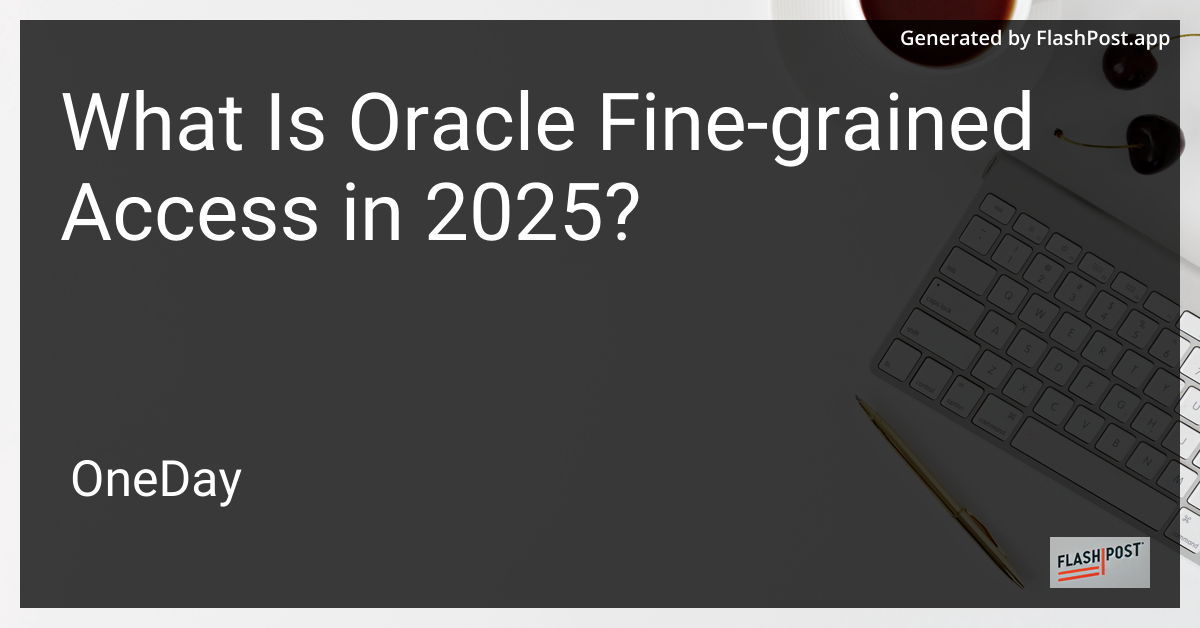
Best Oracle Books to Buy in 2025
| Product | Features | Price |
|---|---|---|
 The Oracle: The Jubilean Mysteries Unveiled |
Grab This Deal  |
|
 Instant Magic Oracle: Guidance to all of life’s questions from your higher self |
Grab This Deal  |
|
 You Ask the Magic Book. The Oracle Answers...: Get Revelations and Messages from the Universe with this Divination Tool to Solve Questions of Life |
Grab This Deal  |
|
 Awakening Intuition: Oracle Deck and Guidebook (Intuition Card Deck) (Inner World) |
- Unmatched Quality: Crafted with premium materials for longevity. - User-Friendly Design: Simplified functionality for everyone. - Competitive Pricing: Best value for performance in the market. |
Grab This Deal  |
 Oracle Card Companion: Master the art of card reading |
Grab This Deal  |
Oracle Fine-Grained Access Control (FGAC) is a powerful feature that has continually evolved to meet the growing needs of data security and user privacy. As of 2025, FGAC remains a cornerstone of Oracle's database security strategy. In this article, we explore the nuances, benefits, and implementation strategies for Oracle Fine-Grained Access in 2025, equipping database administrators and stakeholders with crucial insights.
Understanding Oracle Fine-Grained Access
Oracle Fine-Grained Access is a feature designed to provide granular control over data access at the row and column levels. This functionality allows organizations to enforce security policies directly within the database, ensuring that users only see the data they are authorized to access.
Key Features in 2025
-
Dynamic Data Masking: An enhanced capability that allows for dynamic obfuscation of sensitive data in query results. This feature helps protect privacy without affecting application logic.
-
Policy Simulation: Admins can simulate security policies to test the impact before deployment. This ensures policies are effective and don't unintentionally block legitimate data access.
-
Integration with AI: FGAC in 2025 integrates AI for adaptive security policies that respond to changes in data access patterns, maintaining security without manual intervention.
Implementing Fine-Grained Access
To leverage FGAC effectively, it's important to understand its components:
- Policies: These define the rules for data access at granular levels.
- Contexts: This refers to the environment or conditions under which the policies apply.
- Predicates: Logical expressions defining which data is accessible.
Steps to Implement FGAC
- Define Security Policies: Begin by outlining the rules and conditions under which data should be accessed.
- Set Up Contexts: Identify and configure the contexts that will influence policy application.
- Create Access Predicates: Develop the logical conditions that determine data access.
- Deploy and Test: Implement the policies in a controlled environment and use the simulation feature to test outcomes.
Benefits of FGAC
- Enhanced Security: By limiting data exposure, FGAC minimizes vulnerabilities.
- Regulatory Compliance: Helps organizations comply with data protection regulations like GDPR and CCPA.
- Performance Efficiency: Policies are applied at the database level, reducing overhead.
Conclusion
Oracle Fine-Grained Access in 2025 continues to be an essential tool for robust data security. Its evolution reflects a commitment to addressing emerging security challenges through innovation. By understanding and implementing FGAC, organizations can protect their data effectively.
For more information on Oracle features and tips, feel free to explore these resources: - Oracle Query Tips - Oracle Table Blob Data Insertion - Oracle Date Aggregation 15 Minutes
Stay informed and secure with Oracle's advances in fine-grained access control.